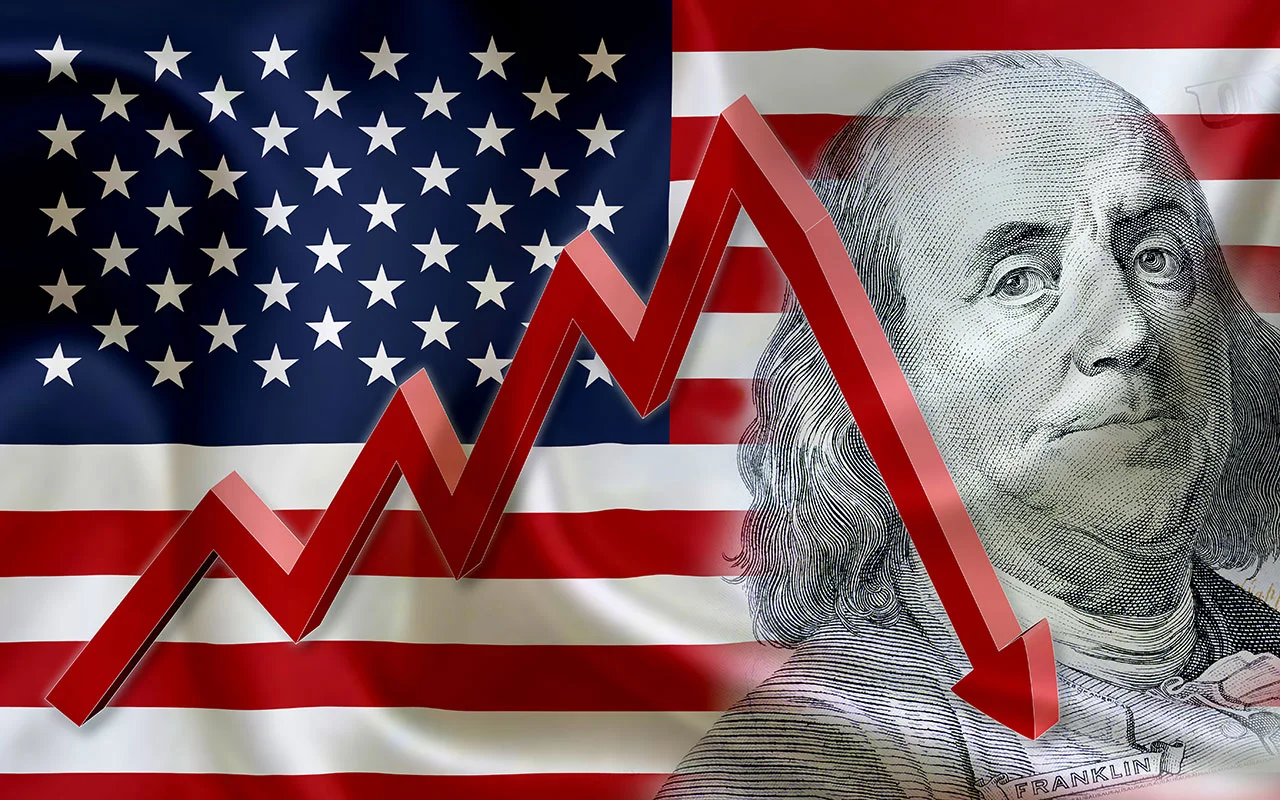Rising Debt Spurs Recession Fears: Key Indicators to Watch
30.07.2024 12:30 2 min. read Alexander Stefanov
The U.S. debt level surpassed $35 trillion on July 29, amplifying worries about the economy and a possible recession.
A crucial indicator to monitor is the Sahm Rule, which triggers a recession alert if the unemployment rate climbs 0.5 percentage points above its lowest point in the past year. Currently at 0.43%, it is nearing this critical threshold. If unemployment reaches 4.2% in the upcoming jobs report on August 2, the rule will signal a potential recession.
The anticipated July jobs report, set for release on Friday, predicts an addition of 200,000 jobs and a slight drop in unemployment from 4.1% to 4%. Average hourly wages are expected to rise by 0.2%, reflecting a 3.7% increase year-over-year. Seasonal hiring, particularly in leisure and hospitality, is likely to influence these figures.
Adjustments for July are historically challenging, and any deviations from the forecast could point to stronger hiring trends.
As Wall Street awaits a possible interest rate cut from Federal Reserve Chairman Jerome Powell in September, some experts believe earlier action might be necessary. Former New York Fed President Bill Dudley, who initially supported prolonged high rates, now advocates for an immediate rate cut.
He cites a slowdown in consumer spending, increased car repossessions, and rising loan delinquencies as reasons for his shift. Dudley warns that delaying rate cuts could exacerbate the risk of a recession.
-
1
U.S. PCE Inflation Rises for First Time Since February, Fed Rate Cut Likely Delayed
27.06.2025 18:00 1 min. read -
2
Key U.S. Economic Events to Watch Next Week
06.07.2025 19:00 2 min. read -
3
Gold Beats U.S. Stock Market Over 25 Years, Even With Dividends Included
13.07.2025 15:00 1 min. read -
4
U.S. Announces Sweeping New Tariffs on 30+ Countries
12.07.2025 16:30 2 min. read -
5
US Inflation Heats Up in June, Fueling Uncertainty Around Fed Cuts
15.07.2025 16:15 2 min. read
US Inflation Heats Up in June, Fueling Uncertainty Around Fed Cuts
U.S. inflation accelerated in June, dealing a potential setback to expectations of imminent Federal Reserve rate cuts.
Gold Beats U.S. Stock Market Over 25 Years, Even With Dividends Included
In a surprising long-term performance shift, gold has officially outpaced the U.S. stock market over the past 25 years—dividends included.
U.S. Announces Sweeping New Tariffs on 30+ Countries
The United States has rolled out a broad set of new import tariffs this week, targeting over 30 countries and economic blocs in a sharp escalation of its trade protection measures, according to list from WatcherGuru.
Key U.S. Economic Events to Watch Next Week
After a week of record-setting gains in U.S. markets, investors are shifting focus to a quieter yet crucial stretch of macroeconomic developments.
-
1
U.S. PCE Inflation Rises for First Time Since February, Fed Rate Cut Likely Delayed
27.06.2025 18:00 1 min. read -
2
Key U.S. Economic Events to Watch Next Week
06.07.2025 19:00 2 min. read -
3
Gold Beats U.S. Stock Market Over 25 Years, Even With Dividends Included
13.07.2025 15:00 1 min. read -
4
U.S. Announces Sweeping New Tariffs on 30+ Countries
12.07.2025 16:30 2 min. read -
5
US Inflation Heats Up in June, Fueling Uncertainty Around Fed Cuts
15.07.2025 16:15 2 min. read


